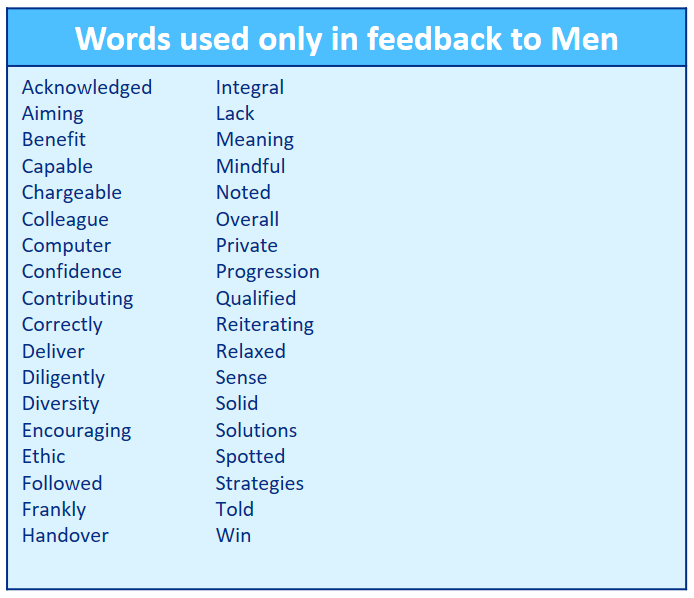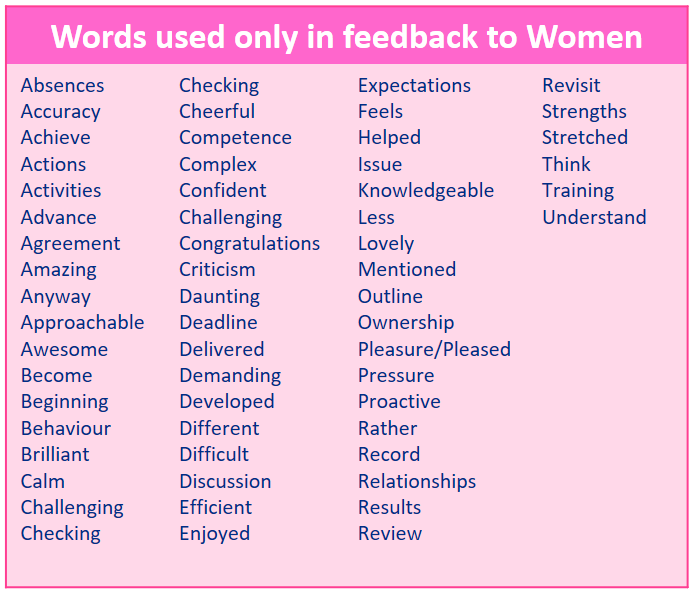
Data showing gender bias in performance feedback
In preparing for a gender stereotypes workshop we decided to take a deeper look into the language used by reviewers when giving feedback to a woman versus feedback to a man.
For this purpose we reviewed the content of around 750 feedback interactions looking for words that only came up in performance review of Men, or only came up in performance review of Women.
There is a body of research to say that unconscious gender bias plays heavily into the type of observations made of men versus women. Our data seems to support this.
In general, we found that feedback given to men used more affirming language. The affirmations tending to reinforce a fixed mindset of 'confidently powering through'.

Words only ever used in relation to men in a feedback sample of ~750
Comparatively feedback given to women used more celebratory language. There were greater undertones of growth mindset; of flexibility, and success in overcoming adversities to get results.
Additionally, we found that language used in feedback to women tended to use more emotional expression.

Words only ever used in relation to women in a feedback sample of ~750
Do work results really happen differently if you're a woman or a man?
One observation that we found particularly interesting was the contrast in expression of the way that work gets done.
For performance review of men we read Correctly, Deliver, Handover, Solid, Solutions, Told and Win. There is not much reflection of teamwork, listening, or inclusiveness in these.
For women it's Accuracy, Achieved, Agreement, Checking, Delivered, Helped, Review, and Revisit.
Given the modern workplace has less face to face interaction and manager and co-worker relationships are tending to get shorter, we believe language is becoming much more important. Whilst body language or familiarity might have overcome careless verbal and written expression in the past this is not longer the case.
We suggest that going forward words (including abbreviations and emoji's) matter more than ever before.
How to watch your words
In an increasingly review centric society, before hitting send on a feedback interaction or performance review, consider this
1) Is your expression gender neutral
2) Is what you share based on observation and facts or is it personal opinions or judgement
3) Are your remarks about strength, and actionable to improve future performance
Without these 3 essentials you could well be falling into hater and troll territory, and there are enough of those without becoming one in your workplace.
What do you think of these language differences?
Please share your thoughts and experiences with us in the comments.